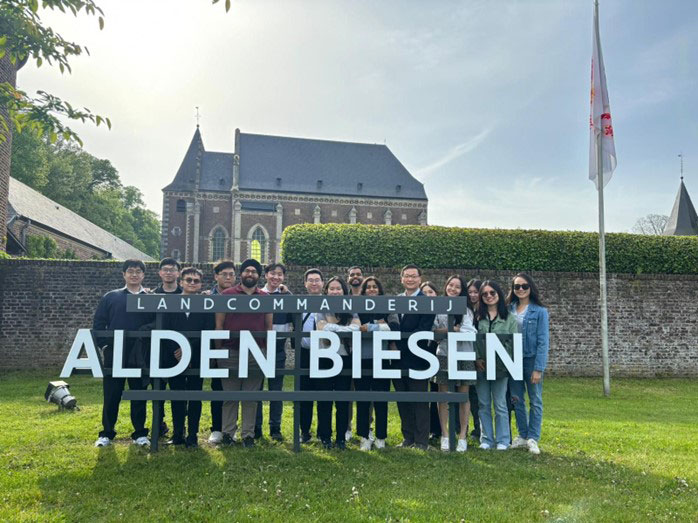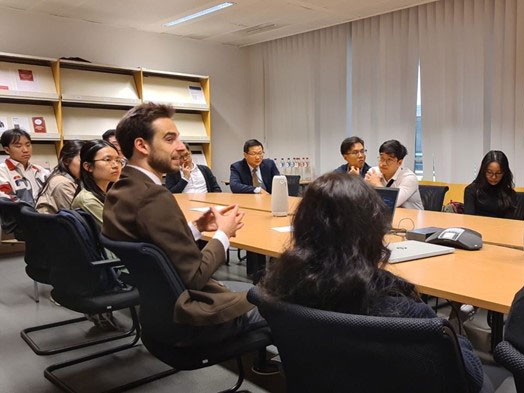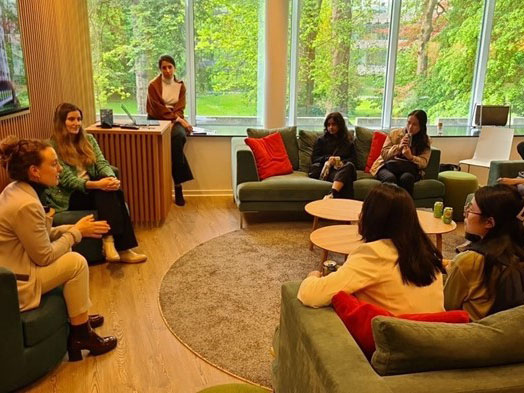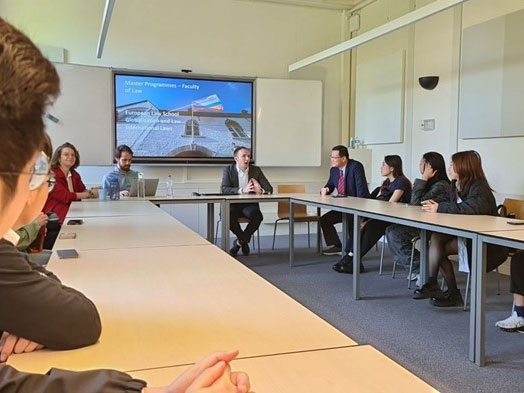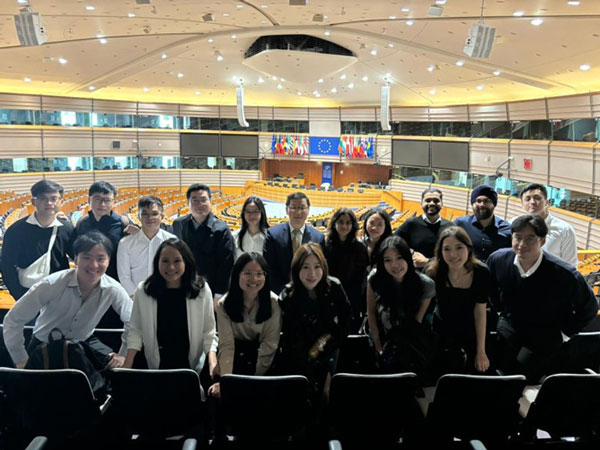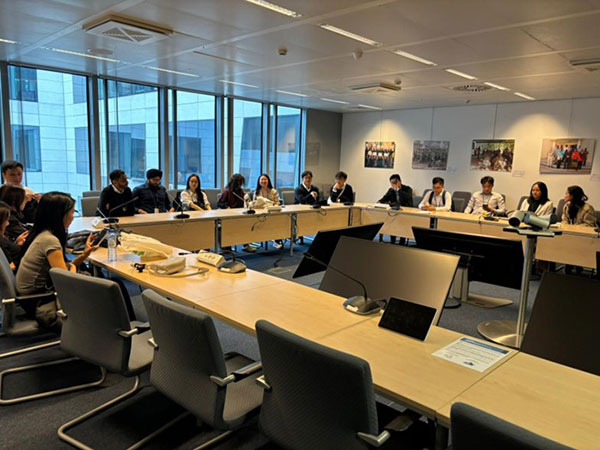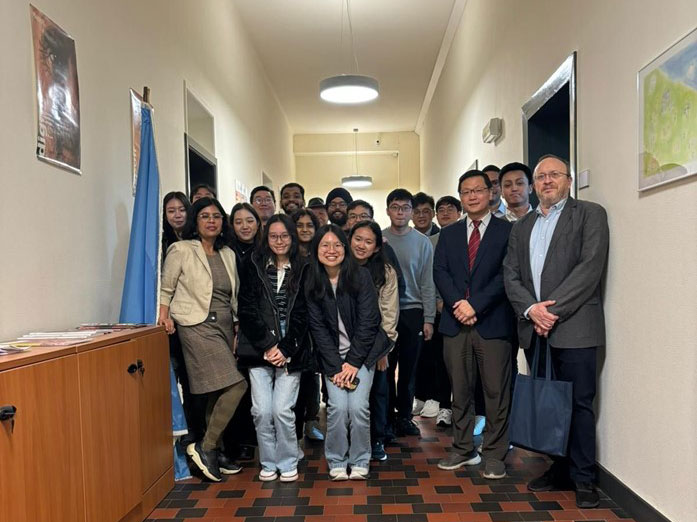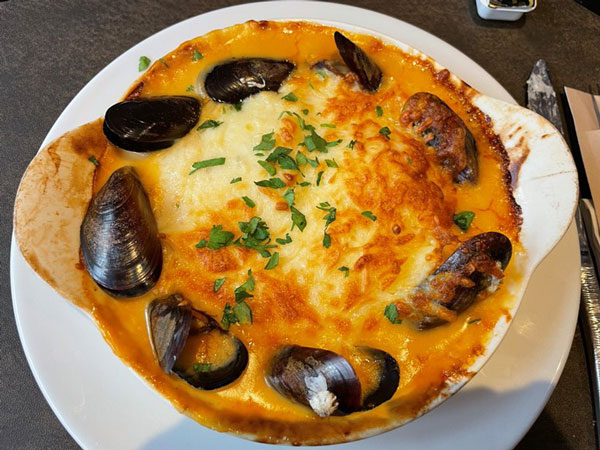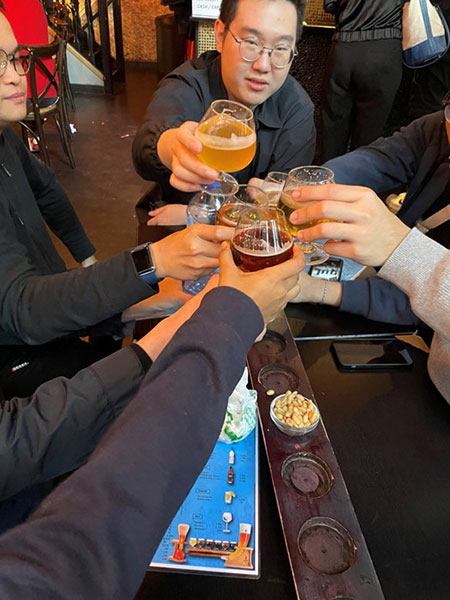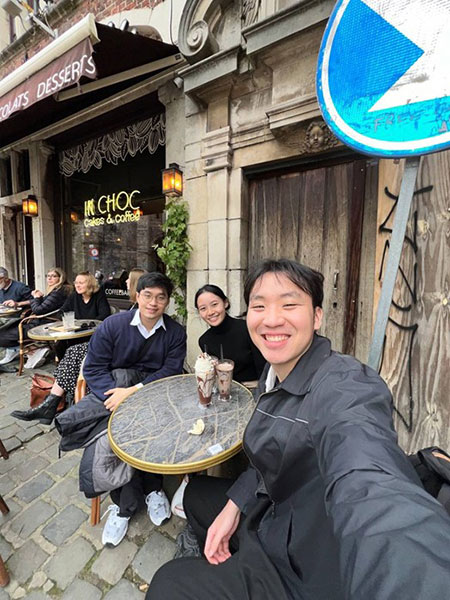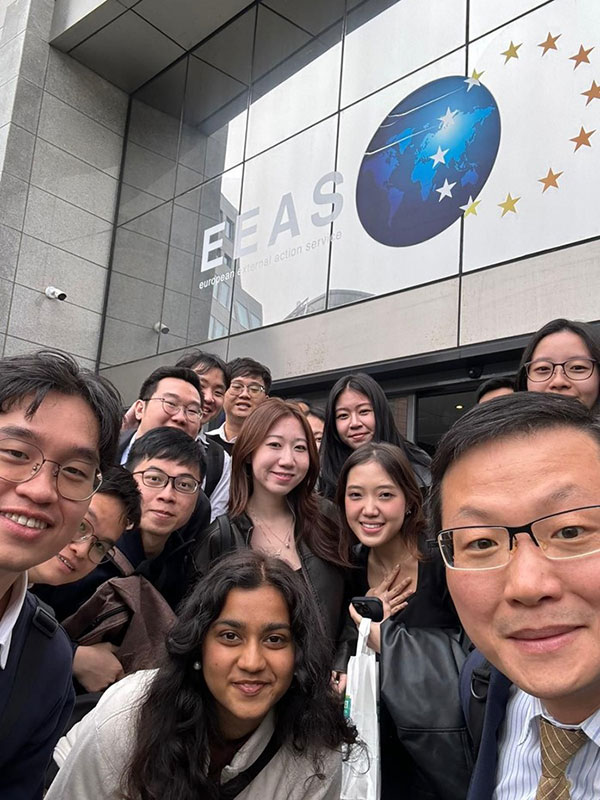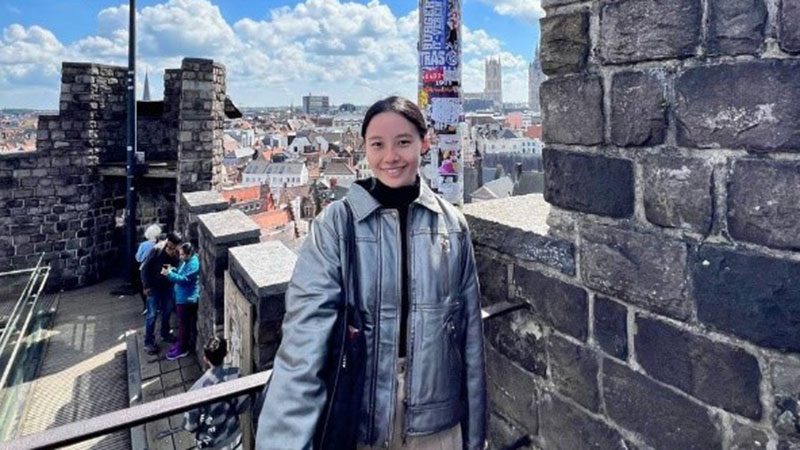
MUSCLES IN BRUSSELS
By Kuan Jie Min
SMU-X Overseas Course: LAW4053 Overseas Project Experience (Law in Non-Asia)
Destination: Brussels, Belgium
About the course
This course explores interdisciplinary issues on EU-ASEAN law and relations. The EU and ASEAN are the world’s most advanced regional structures and represent different models of integration. In this SMU-X Overseas course (under the Overseas Project Experience (Non-Asia) model), students learn about EU and ASEAN institutions and examine the EU’s new Indo-Pacific strategy from legal and political perspectives. In particular, the course assesses EU-ASEAN economic agreements with a focus on cutting-edge areas of trade and investment liberalization, AI and digital trade, and sustainable development including the protection of environmental and labour rights. In addition to visiting law firms, government agencies and international organizations, student will also participate in a consultancy project. Through the project, students will learn how to solve business and political problems with guidance from the faculty and project mentors. The project will focus on evaluating legal problems in different areas of law and recommending/applying solutions to these problems.
Reflection/Testimonial
Cobblestone and cafes line the streets while soft “Bonjours” fill the air. A cold breeze sweeps by as a group of us warm up with hot Belgian chocolate, coffee, and biscuits outside a charming, family-owned cafe painted artfully in pastel green, its interiors adorned with abstract artwork. Occasionally, a jogger passes by with his dog. At the table next to us, another group sits with cigarettes in one hand and warm tea in the other. My arrival in Brussels was marked with a typical Belgian afternoon. We catch up on our lives and share our excitement for the days ahead. Nonetheless, a persistent concern occupied my thoughts... Before the trip, each group was assigned a consultancy project requiring a comprehensive report. My group's research focused on evaluating the effectiveness of the EU's engagement with the ASEAN region, particularly in its efforts to encourage ASEAN to adopt EU environmental norms. We analyzed the strengths and weaknesses of these methods and provided recommendations for future EU-ASEAN interactions. After attending lectures by professors throughout the semester on EU law and the functioning of the EU system, one might argue that the knowledge gained, combined with online research, was sufficient to produce a competent report and to understand the institutions we were scheduled to visit in Brussels. This raises the question: why was it necessary to travel halfway across the globe to meet the individuals behind these organizations, with which we were already familiar? Much like the fading chimes of the Ghent Belfry, the initial question that weighed on my mind gradually diminished and eventually disappeared by the middle of our trip. This journey transcended a mere academic endeavor; the visits and activities we participated in provided us with thought-provoking, professional, and social experiences that left a lasting impact on me. Thought-provoking Experiences Meeting with officers from the EU External Action Service and listening to their discussions about engaging with ASEAN was a highlight. These conversations gave us fresh perspectives on the strategic changes the EU is making in this dynamic region. As one of the world's fastest-growing economies, ASEAN wields increasing bargaining power. The era of Western dominance is waning, and the EU can no longer impose its norms unilaterally. It must collaborate with regional players to develop bilateral solutions that address the unique concerns of each ASEAN state, fostering effective long-term cooperation. The EU's challenge in maintaining its policy-making leadership is compounded by ASEAN's economic strength and the need for its support against a rising China. This geopolitical perspective transcends mere legal knowledge, revealing how laws provoke emotions and tensions between states and individuals—much like Malaysia and Indonesia's hostile reactions to the EU Deforestation-Free Regulation. The law cannot be understood in isolation; it has far-reaching diplomatic implications on the global stage. Professional Growth Visiting research institutions like the Egmont Institute and the United Nations University Institute on Comparative Regional Integration Studies (UNU-CRIS) immersed me in environments where passionate individuals work to solve real-world problems.
Initially doubtful about the value of research outputs, as they seemed to constitute most of the internet's least visited content, often relegated to the depths of its database after a few citations, I was nonetheless inspired by the enthusiasm of these researchers. For instance, a UNU-CRIS researcher was working on standardizing Environmental Impact Assessment Indicators worldwide. If adopted, their recommendations could streamline trade compliance with environmental regulations, reducing costs by eliminating the need for multiple tests and certifications across different countries. While such research might not be immediately implemented by governments, it offers a vision for a better future, a foundation for discussions, and a basis for lobbying to initiate change, however distant it may seem.
Meeting professors and students from Maastricht University and learning about their postgraduate programs piqued my interest in further studies. Additionally, interactions with associates from the Belgian firm Van Bael & Bellis opened my eyes to the field of international trade law, a potential career path I am eager to explore. These experiences have prompted me to reflect on various future possibilities, keeping my options open. Social Experiences Living in a culturally different country introduced me to new cuisines and lifestyles, along with their challenges. Google Translate and hand signals became essential tools, especially when navigating the bus system on my first day. The need to simultaneously watch out for trams, bicycles, and cars was a surprisingly stressful challenge, unlike anything I had encountered in Singapore. However, strolling past centuries-old buildings repurposed as shops and stores, my imagination transported me to the medieval glory days of these towns. I discovered delightful culinary surprises, like the numerous ways to cook mussels, and also developed a fondness for waffles and ice cream, which became my go-to desserts, even after returning to Singapore. Conclusion This SMU-X experience has profoundly impacted me. Beyond academic knowledge, it has shaped my future career interests and increased my desire for travel and similar experiences. I highly recommend this module to any student considering it. True to its description, it was an experiential learning experience in the fullest sense.
Photo Gallery
